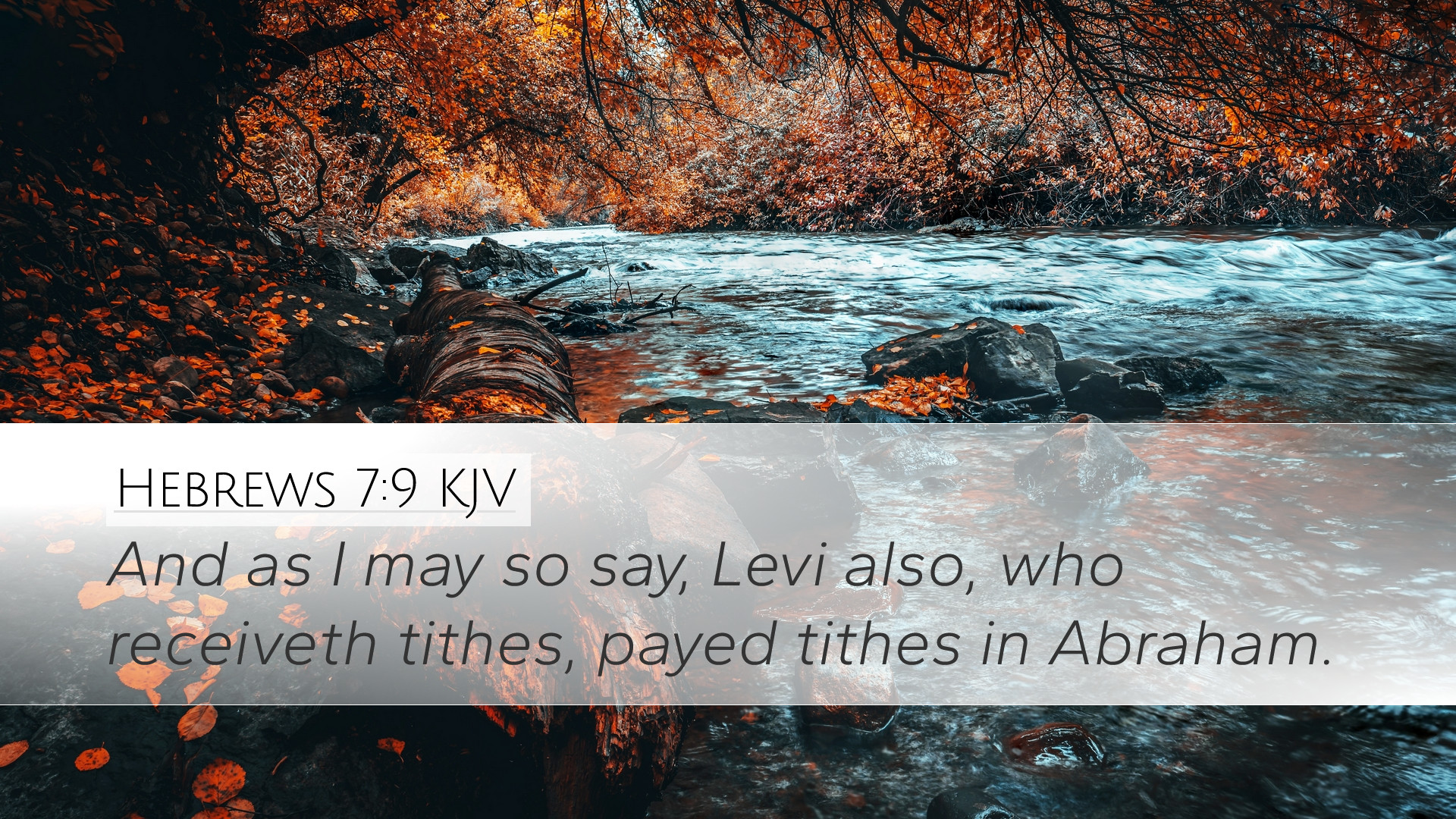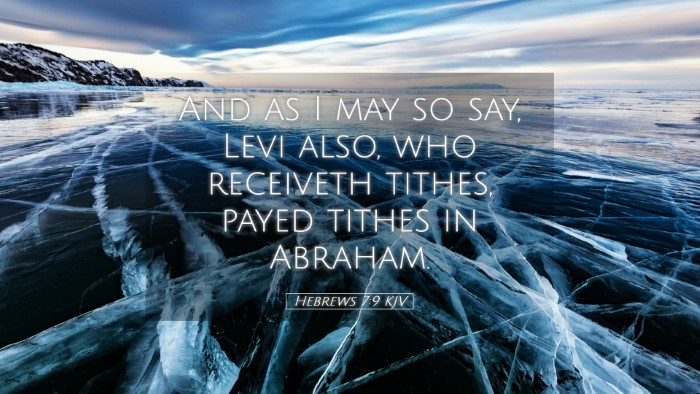Hebrews 7:9 - Commentary Overview
Hebrews 7:9 states, "And, as I may say, Levi also, who received tithes, paid tithes through Abraham." This verse serves not only as a doctrinal assertion concerning the lineage of the Levitical priesthood but also provides profound theological implications regarding the nature of the priesthood of Jesus Christ.
The Author's Intent
The author of Hebrews is utilizing the historical context of Levi and Abraham to illustrate a pivotal aspect of Christ's priesthood. By showing that even Levi, through Abraham, paid tithes to Melchizedek, the author links the priesthood of Christ to a higher order.
Matthew Henry's Insights
- Levi's Subordination: Matthew Henry emphasizes that Levi's action of paying tithes through Abraham signifies the subordination of the Levitical priesthood to the Melchizedekian order. This lays the groundwork for understanding that Christ's priesthood transcends the earthly Levitical system.
- Typology and Symbolism: Henry articulates the typological relationship between Melchizedek and Christ, highlighting how Melchizedek serves as a type of Christ, who is both king and priest, uniting two significant roles that the Levitical priesthood could not fulfill.
- The Significance of Tithing: The act of tithing in this context underscores a principle of giving acknowledgment and honor to a higher spiritual authority, which is crucial for understanding the nature of worship and reverence due to Christ.
Albert Barnes' Commentary
- Levi's Inclusion: Barnes points out that by stating Levi paid tithes through Abraham, the author of Hebrews indicates the rightful acknowledgment of Melchizedek's priesthood even before the establishment of the Mosaic law.
- Establishing Christ's Priesthood: Barnes illustrates that this verse serves to establish the legitimacy and superiority of Christ's priesthood as it is predicated on a different order than that of the Levites, thus affirming the unchanging nature of Jesus' priesthood.
- The Importance of Lineage: He notes that Jewish readers would have understood the importance of lineage and priestly authority, making this argument particularly compelling within the cultural context of the original audience.
Adam Clarke's Contributions
- Theological Implications: Clarke elaborates on the theological implications of Levi's payment of tithes through Abraham. He discusses the idea that in God's economy, the actions of one can be imputed to the whole, pointing to the concept of representation inherent in biblical theology.
- Abraham's Greatness: Clarke stipulates that the greatness of Melchizedek is further amplified by the fact that Abraham, revered as the patriarch, recognized Melchizedek's priesthood by responding to him in tithes.
- Christ as Eternal Priest: He asserts that this verse should compel believers to recognize Christ not just as a priest but as an eternal high priest, emphasizing the contrast between the temporal nature of the Levitical priests and the everlasting priesthood of Christ.
Theological Themes
This verse is rich in theological themes that resonate beyond its immediate context. It raises essential questions regarding authority, representation, and the unfolding of God's redemptive plan.
1. The Authority of Christ's Priesthood
By relating Levi's tithing to Melchizedek, Hebrews 7:9 underscores the intrinsic authority of Christ's priesthood, showing that it is not subject to the limitations of the Levitical system, thus urging readers to consider the new covenant's implications.
2. Representation in Old Testament Theology
The concept of representation is critical, as Abraham's actions on behalf of Levi demonstrate the intercessory nature of Christ, who represents all believers. This highlights the importance of understanding one's identity and standing before God through Christ.
3. The Nature of Worship
The act of tithing signifies the proper response of worship and acknowledgment of God's authority. Hence, believers are encouraged to approach God with reverence, recognizing the holiness of Christ's priesthood.
Concluding Thoughts
Hebrews 7:9 encapsulates a profound theological truth regarding the nature of priesthood. Through the lens of Levi, Abraham, and Melchizedek, the author of Hebrews builds a strong case for the supremacy of Christ’s priestly function.
The insights from Matthew Henry, Albert Barnes, and Adam Clarke collectively invite us to a deeper understanding of the implications of Christ's high priesthood and challenge us to embrace the new covenant established through Him. This passage serves as a reminder of the continuity of God's plan and the rich theological heritage that informs our faith today.


